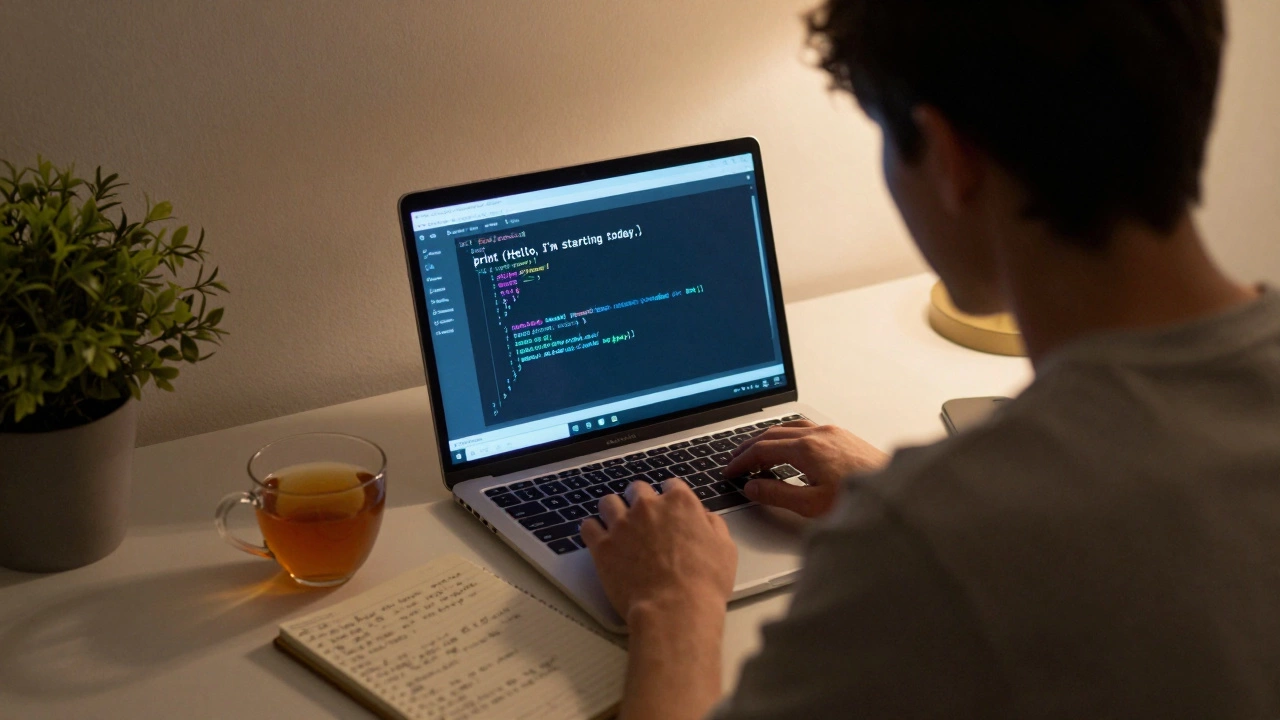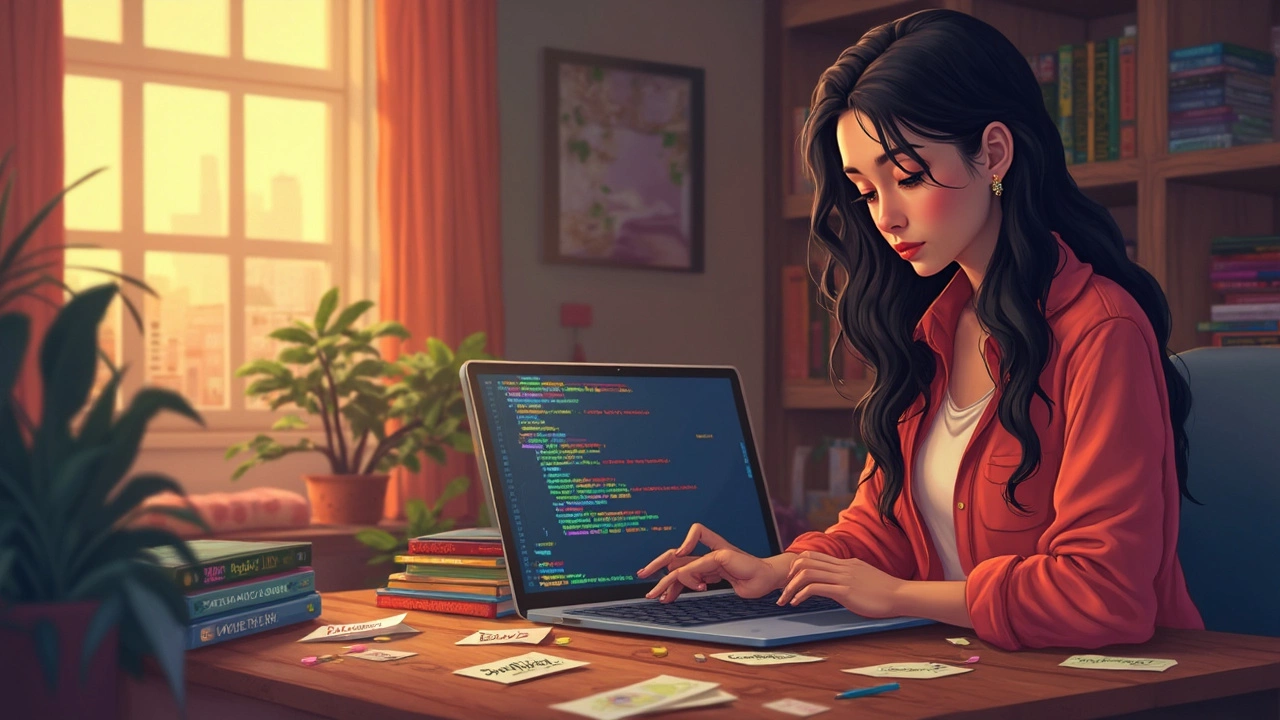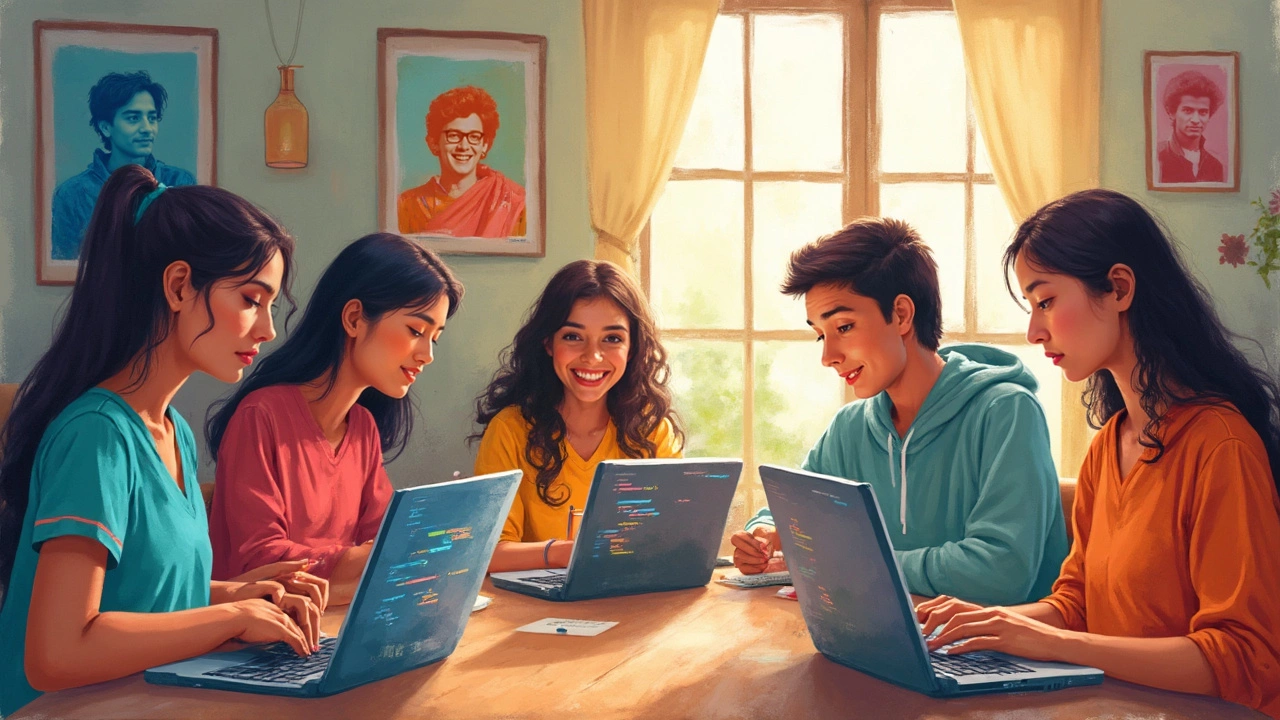Learn to Code: A Practical Starter Guide for Beginners
If you’ve ever wondered how to turn an idea into a working app, the answer starts with learning to code. You don’t need a computer science degree or fancy jargon – just a clear path and the right tools. In this guide we’ll break down why coding matters, pick the best first language, and point you to free platforms that actually work.
Why Learn to Code?
Coding is more than a job skill; it’s a way to solve problems quickly. Want to automate a boring spreadsheet task? Write a small script. Want to build a personal website? A few lines of HTML and CSS do the trick. Even non‑technical roles benefit from basic programming – it sharpens logical thinking and makes data easier to handle. Plus, the demand for coders keeps rising, so every hour you spend now can boost future earnings.
Your First Steps to Coding
Start with a language that gives quick results. Python tops the list because its syntax reads like plain English and it powers everything from web apps to data analysis. Sign up for a free account on platforms like Codecademy or freeCodeCamp, follow the interactive lessons, and write code directly in the browser – no installation required.
Set a tiny goal for the first week: build a “Hello, World!” program, then modify it to ask for your name and greet you. That simple loop teaches variables, input, and output. Once comfortable, move to a tiny project such as a calculator or a to‑do list. Real projects lock in concepts far better than isolated exercises.
Pick a learning style that fits you. Some learners prefer video tutorials – YouTube channels like “Programming with Mosh” break down concepts in under 10 minutes. Others thrive on text‑based walkthroughs – the “5 Common Types of Codes Explained” article gives a quick overview of coding, cipher, barcode, and more, helping you see where programming fits.
Don’t forget version control. Installing Git and creating a free GitHub repository lets you track changes and showcase your work to future employers. A simple commit after each feature teaches discipline and builds a portfolio you can share.
When you hit a roadblock, search the exact error message. Chances are someone on Stack Overflow has solved it already. Learning to read error logs is a crucial skill – it turns frustration into a learning moment.
Finally, keep a steady rhythm. Coding 30 minutes a day beats cramming a whole weekend. Use a habit‑tracking app or a simple calendar reminder. Consistency beats intensity, especially when you’re just starting.
By following these steps – pick Python, use a free interactive platform, build a tiny project, and practice daily – you’ll move from “I want to code” to “I can code” faster than you think. The world of programming is huge, but every expert began with a single line of code. Start typing today.
How to Start Coding for Beginners: A Simple Step-by-Step Guide
Learn how to start coding as a beginner with simple steps, free tools, and real projects. No experience needed-just curiosity and consistency.
read moreIs coding difficult for beginners? What to expect when starting out
Is coding difficult for beginners? It’s not about talent-it’s about consistency. Learn what to expect, common mistakes to avoid, and how to start coding with zero experience.
read moreCan I Learn to Code Without Strong Math Skills?
Yes, you can learn coding without strong math skills. Discover beginner‑friendly languages, learning paths, and tips to succeed.
read moreWhich Code to Learn First? A Clear Guide to Starting Your Coding Journey
Not sure which programming language to learn first? This article breaks down the real-world uses of popular coding languages, matches them to everyday goals, and helps you sidestep common beginner mistakes. You'll get straight-up advice—no jargon—on picking your first language, whether you're curious about web apps, gaming, or even just automating boring stuff. Find out what actually matters when choosing where to start, and see what works best for different learning styles. This guide will save you time, effort, and a few headaches on your way to learning your first programming language.
read moreHow Long Does It Realistically Take to Learn to Code?
Thinking about picking up coding but wondering how long it'll take? This article breaks down realistic timelines for learning to code depending on your goals and schedule. We'll look at the levels you need to reach, the common roadblocks, and how to speed things up. You'll get honest advice, plus some practical tips to avoid wasting your time. Coding isn't as mysterious as it seems—and you might surprise yourself with how fast you can make progress.
read moreSimplest Coding to Learn: Where Should You Start?
Choosing your first coding language can feel overwhelming, but some options are much easier for beginners. This article looks at what makes a coding language simple, highlights the most approachable choices, and compares practical uses. Find clear advice on how to start and what to expect in those first steps.
read moreBest Coding Platforms for Beginners: A Straightforward Guide
Picking the right coding platform can make starting out way less stressful. This article compares the top choices for beginners, looking at user experience, learning tools, costs, and what languages you can learn. You’ll get tips on avoiding common mistakes and how to stick with coding long enough to actually enjoy it. Plus, there are nuggets of real-life advice to set you up for success. Perfect if you’re about to sign up for your first online class or just want to dabble for fun.
read more





